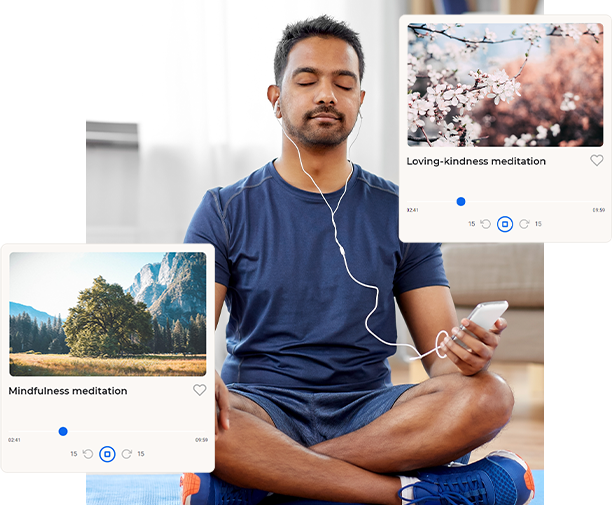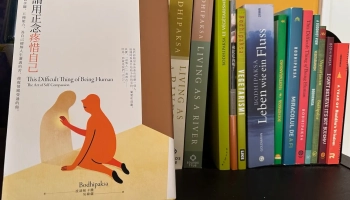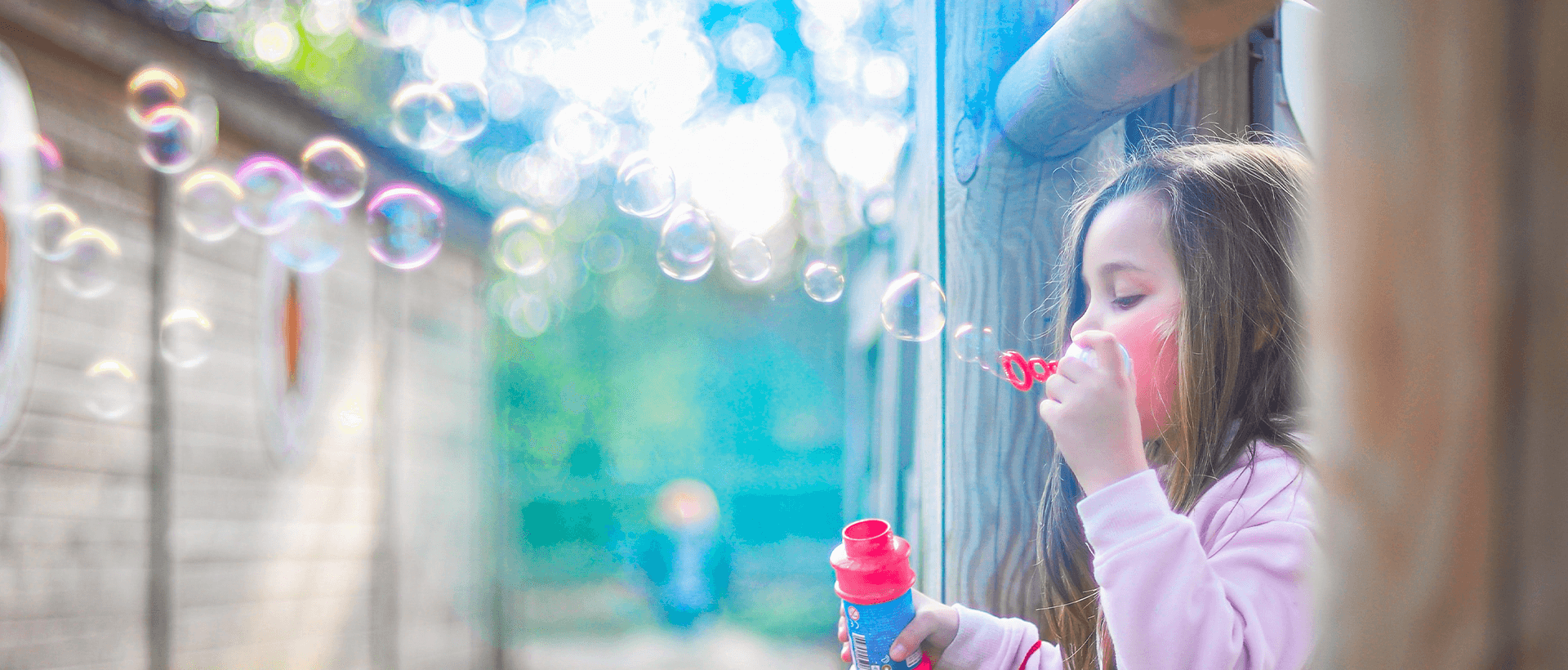
[ad_1]
Kids don’t have to face the daily stressors of adult life, but sometimes they get anxious just like the rest of us. Parents are left wondering what to do to help their kids calm down in these situations. Anxious adults often benefit from the practice of mindfulness, defined as the mentality achieved by focusing on the present and accepting one’s thoughts and feelings in the moment. It isn’t just meditation either, there are mindfulness activities that kids will love doing.
Do mindfulness activities help kids? Experts say yes. Studies on the impact of mindfulness in classrooms have shown that the practice boosts academic performance, increases optimism, and calms anxiety. Learning mindfulness early in life will help kids grow up to be healthy adults with a strong grasp on stress management.
While it may be difficult to get an anxious child to sit still and meditate for half an hour, there’s a variety of other activities you can try. If you’re looking for mindfulness activities for kids, here are 16 ideas.
16 mindfulness activities for kids to try out
1. Blow some bubbles
Kids love bubbles! Have your kids breathe in slowly and then relax as they exhale into the bubble wand. Tell them to visualize their anxious thoughts inside the bubble and watch as the bubble floats away into the air and pops. After the bubble is gone, so are the kids’ worries. This exercise is a good way to teach your kids about mindful breathing, which can help them calm down quickly in stressful situations.
Blowing bubbles is also a mindful activity. It gets kid out of their heads and focus on blowing bubbles. Want to challenge them and get them to focus more? Challenge them to blow the biggest bubble they can! Watch as they light up with attempt after attempt.
400+ Free Guided Meditation PracticesDeclutter The Mind will help you live more mindfully and understand your mind better with a growing library of free guided meditation practices, courses, and daily meditation practices.
2. Focus on the 5 senses
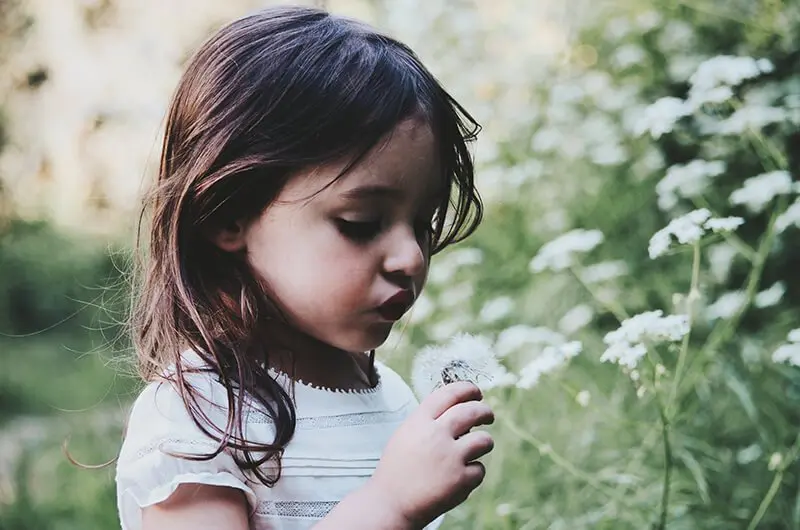
Teach your kids how to be present in the moment by using their senses. This classic mindfulness exercise distracts them from their worries by forcing them to engage with their immediate surroundings. Taking a minute to focus on each sense can slow down racing, anxious thoughts.
To perform the 5 senses exercise, kids will need to look around and ask themselves the following questions:
- What can I see?
- What can I hear?
- What can I smell?
- What can I feel?
- What can I taste?
Introduce props and even things they may have never smelled, heard, seen, or felt before. Showing them pictures of unique animals foreign to your country, for example. Give them the prop, ask them to use their senses to describe the object in detail. Is the object rough or soft? Is it heavy or light? Does it smell good or bad?
3. Draw it out

Drawing is one of the most fun mindfulness activities for kids. Tell your kids to close their eyes and think of something that makes them happy. Once they have decided on something, give them a notebook and some crayons and ask them to draw it.
While they are drawing, ask them to think about how it feels to hold the crayon. Next, tell them to focus on the texture of the paper. Ask them to describe the colors they are using in the picture. This will calm the kids’ anxious thoughts by pointing their full focus towards the act of drawing.
Encourage your child to describe what they’re drawing as they’re drawing out loud. You’ll also notice that they might become distracted and talk about other things as they draw. When this happens, gently ask them to describe what they’re doing. “What are you doing now?” “Which part are you drawing now?” Have them describe the process of their drawing with you.
4. Enjoy a mindful snack
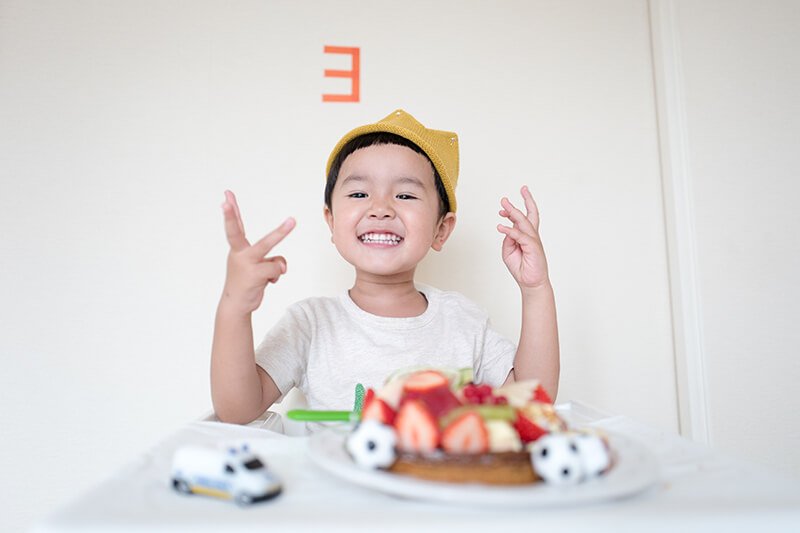
Teach your kids the practice of mindful eating by giving them a healthy snack, such as an apple or a granola bar. Before they eat the tasty treat, ask them to take a moment to look it over, focusing on its shape and color. Have them describe how the snack feels in their hands. After they take a bite, tell them to think about the flavor and texture of the treat.
Mindful eating has several benefits. In addition to calming down anxiety, studies show that this practice can help prevent poor eating behaviors, such as binge eating, by allowing the body to more easily recognize fullness. Focusing on the experience can also make a snack seem more enjoyable.
You can even make a game out of trying new foods. Ask them to be a judge on a game show describing the flavor in great deal and giving it a score out of 10.
5. Go out for a stroll
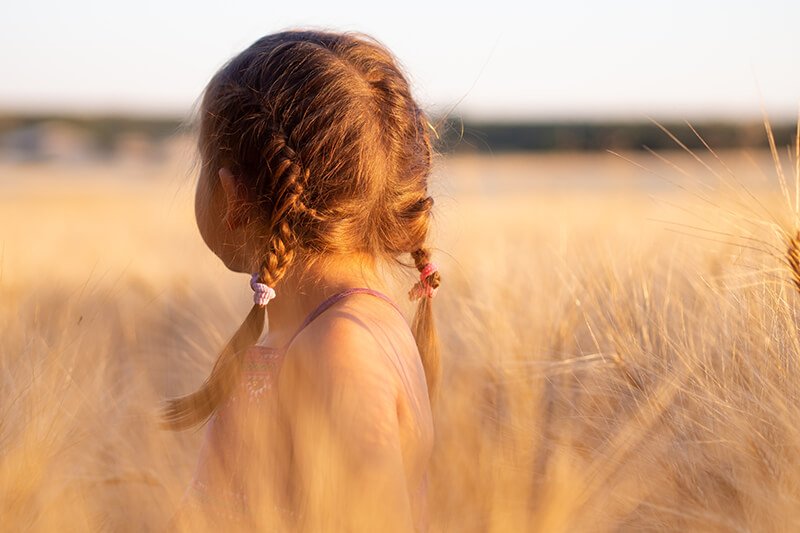
Physical activity can reduce stress levels, so take your kids for a walk around the neighborhood to burn some energy. Kids don’t need to know it’s a walking meditation for it to be a mindful experience. This is one of the easiest mindfulness activities for kids as well as an excellent opportunity to teach them how to enjoy nature and appreciate their surroundings. Plus, kids already have a ton of energy, so it can be challenging to keep them still for longer than a few minutes while you try to go through mindfulness exercises with them!
While you are out, have them describe some of the things they see. Ask them to notice and point out any noises or sounds. Get them to point out any smells. Ask them to call the colors they see. To make it more like a game and more fun (while sneaking in some mindfulness training) call out the colors of the rainbow and have them point out or identify the objects that are the color you call out. Red, orange, yellow, green, blue, purple.
6. Practice buddy breathing
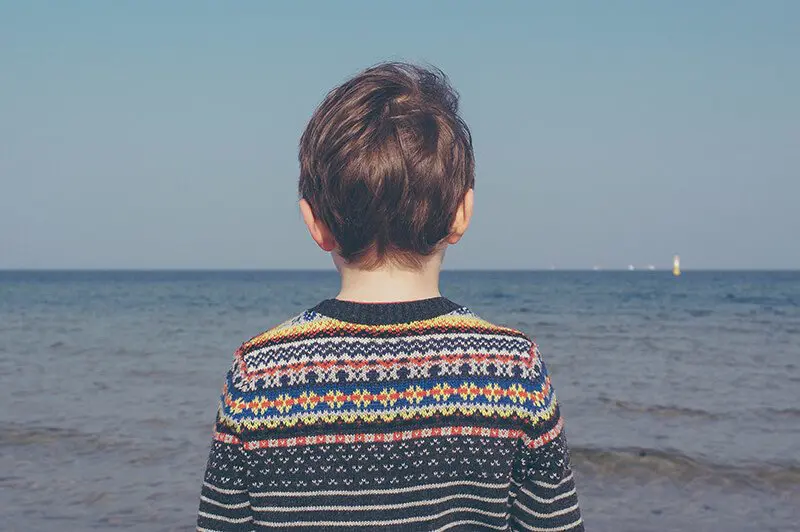
The concept of mindful breathing exercises might be difficult for young kids to grasp, so enlist the help of a favorite teddy bear. Have your kids lie down on their backs. Place a stuffed animal on each kid’s belly and ask them to gently place their hands over it. Count to 3 and instruct them to breathe in through their noses. As they inhale, tell them to focus on the feeling of the air inflating their bellies. Count to 4 and have them breathe out through their mouths. The stuffed animals will rise up as they breathe in and fall as they breathe out, providing a good visual representation of what is going on inside of their bodies.
Deep breathing is a fantastic mindfulness exercise. A recent study from the University of Waterloo found that mindful breathing boosts brain function and energy levels. It also relaxes the mind and body, so teaching this exercise allows anxious kids to calm themselves down quickly.
7. Make your own stress balls
This fun craft has the added benefit of giving your kids an excellent mindfulness tool. Take colorful balloons and insert a funnel in the neck. Help your kids carefully pour in the filling of your choice. Try flour, sand, or cornstarch for squishy stress balls. You can also use dry rice or birdseed for a firmer texture and a less messy experience.
Once the balloons are filled, tie them up and let the kids decorate the outside with paint or stickers. Stress balls allow kids to physically relieve any negative feelings with just a squeeze. They are also great as an object to focus on while meditating.
8. Feel the beat
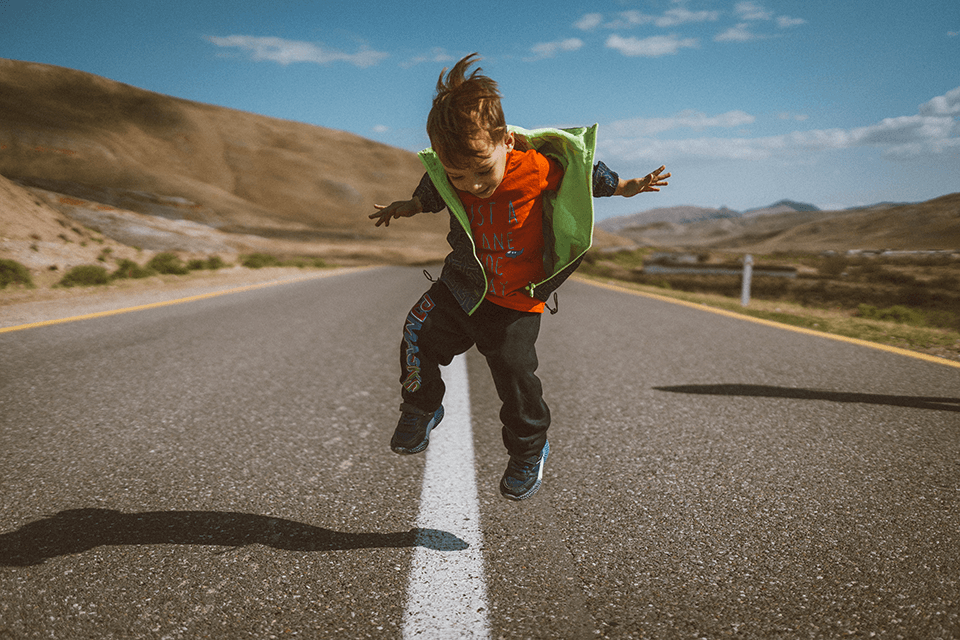
Encourage your kids to let out some energy by doing jumping jacks or running in place for 30 seconds. After they are done, have them sit down, close their eyes, and place a hand over their hearts. Tell them to focus their full attention on how their heartbeats feel. Ask them if they can feel their heartbeats slowing down as they rest. Next, have them focus on their breathing. Ask them to notice a deep breath versus the body breathing on its own. End the exercise by encouraging them to share any other physical sensations they are feeling. This is a great exercise for teaching mindfulness to elementary school students since it combines something physical with something that encourages mindful awareness.
9. Journaling with prompts
Teach mindfulness through a simple writing activity for kids. Bring out their favorite color construction paper and crayon and leave them a simple prompt to write and draw from: “Today I feel…” Ensure you let them know there’s no right or wrong answer here. Even drawing a sun is a way for a child to mindfully express how they feel.
Leave them a different color paper for each today of the week, with the prompt already written out for them. They can do this in the morning, or after they come back from school. Once the activity becomes a routine for them, this is something they can do privately and for fun. Instead of just sensing or perceiving these feelings, they start putting them to paper and giving them a name. It will teach kids to become more familiar with the various feelings they have throughout the day while practicing mindfulness.
10. Simple and fun body scan

While a formal meditation practice can be challenging for kids, a simple body scan that you guide a child through can be one of many fun mindfulness activities you teach children. Have your child sit and close their eyes and start the “body scan game”. Next, have your child use their hand to make contact with different points of the body that you prompt them to touch. It’s probably easier that the first time you have them do this, they do this mindfulness practice with their eyes open watching you do it.
“Hand to top of head. What does the top of the head feel like? Is it warm? It is hairy? Is it soft? Is it round?”
“Hand to belly. What does the belly feel like? Are the clothes soft? Is the belly itchy?”
And continue to guide them through fun prompts and silly names and descriptions for body parts. All while asking them what does the part feel like in the present moment.
11. Mindful listening
This mindfulness practice for kids takes a bit of preparation but it’s one of the closest things to a formal mindfulness practice and meditation that a child of any young age can do. It can even be a way to introduce mindfulness to younger students.
There are two ways to setup a fun mindful listening activity. The first is to simply have the kids sit either with their eyes opened or closed, and listen to different common animal sounds and have them write out or say the animals they heard. Paying attention with just one sense is a great way to be more mindful and have students learn about mindfulness.
The other mindful listening exercise you can try requires more setup and turns this activity into a fun game. You play two identical sound clips, except add a subtle sound effect to one of them and ask the kids to write down or call out the difference in both clips. For example, you could play a short 10-second audio clip of people playing basketball. But the second time you play it, you add a windchime sound effect in the middle of it. Mindfulness activities for kids can be games. If you find some age groups just aren’t as engaged in practicing mindfulness as others, try introducing some games.
12. Gratitude exercise
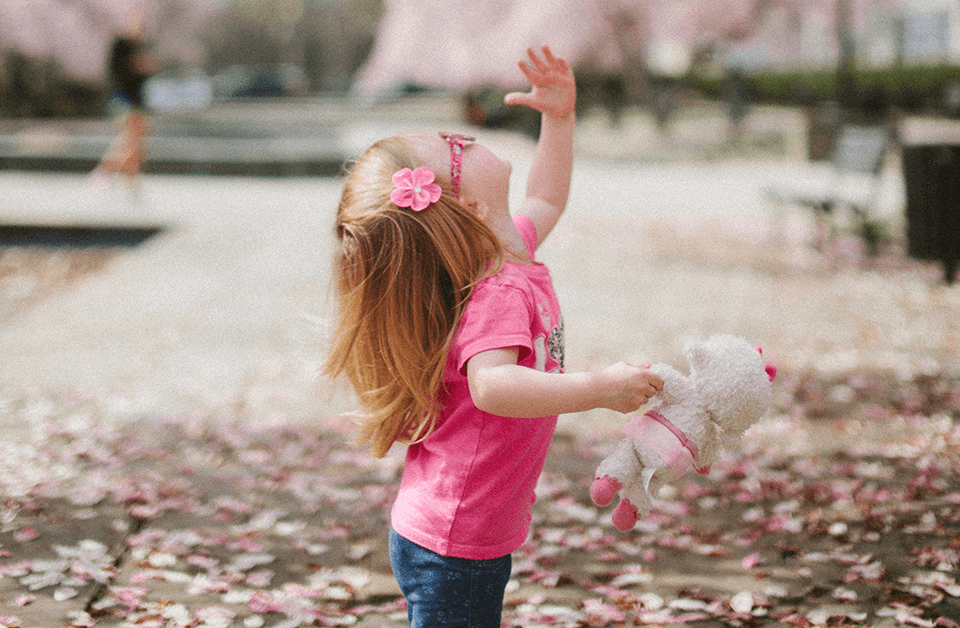
Practicing mindfulness isn’t just about the present moment and the senses. Mindfulness activities for kids can be grown up activities, too. Reminding your kids to think of the things they’re grateful for will not only teach mindfulness, but also invoke more positive emotions. Plus, it might even surprise the adults with the responses they get! You’d be surprised how bright and creative some of the answers are. It may even give you as an adult new things to be thankful for, and some perspective.
Make it a part of your daily routine with them. Either while having breakfast, picking them up from school, or putting them to bed at night. Simply ask “What are you thankful for today?” If they repeat a previous answer, ask “what else?” You can even follow-up with them “Why are you thankful for that?” or “How does being thankful for that make you feel?”. If your child is struggling for an answer, share with them who or what you’re thankful for first. You can also build a habit such as having your child create a drawing of their favorite moment of the day as part of a daily habit they do in the evening.
13. Mindfulness meditation for kids
Finally, formal meditation practices for kids do exist and can help with both getting kids to practice mindfulness and teaching mindfulness. However, I’d recommend exploring the other activities for kids listed earlier first before thinking about how to teach meditation to children. Meditation is an option when the child has practiced being present and mindfulness through the activities we mentioned earlier. There’s plenty of tools and resources to help you with this, but you could also try a simple 5 minute guided meditation practice from our app Declutter The Mind, and repurpose that for your child.
Here’s an easy and simple mindfulness meditation that incorporates deep breaths while still keeping it a fun mindfulness activity for kids.
- Lie down on your back and rest your hands on your belly.
- Take deep breaths and notice the rise and fall of the belly. Notice the hands riding the belly like a sailboat riding a wave.
- “What are you thinking about?” If it’s something other than the practice, or sailboats and waves, bring it back to watching the hands ride the wave of the belly slowly. The hands like a sailboat on the belly.
- Count the breaths as they pass. Each deep breath, 1. Each exhale, 2.
- Finally, bring someone to mind that makes you happy. It can be real or fictional.
- As you come to an end of the practice, wiggle your toes, arms, legs, and fingers.
- Get up and smile.
14. Cloud watching
As part of trying to do some mindfulness activities for kids you can do exercises, such as cloud watching. Kids have wonderful imaginations, so you can ask them to describe what the clouds look like. Is it a dinosaur? A goblin? A silly face? Let them guide you through what they see when looking at the clouds.
Afterwards, you can introduce cloud watching to introduce meditation to them. You can explain that just as clouds float on by, thoughts in their head do the same thing. They come in and out of your head and are easy to change.

15. Yoga or stretching
To introduce mindfulness activities to kids, you can do this by having a yoga class for your students or doing a classroom stretching practice. Remind them that they can go as far as they can. If they can’t go all the way during a stretch it’s okay.
While they stretch ask them to tell you where in their body they feel the stretch to help them get in touch with their bodies to recognize where they feel the burn.
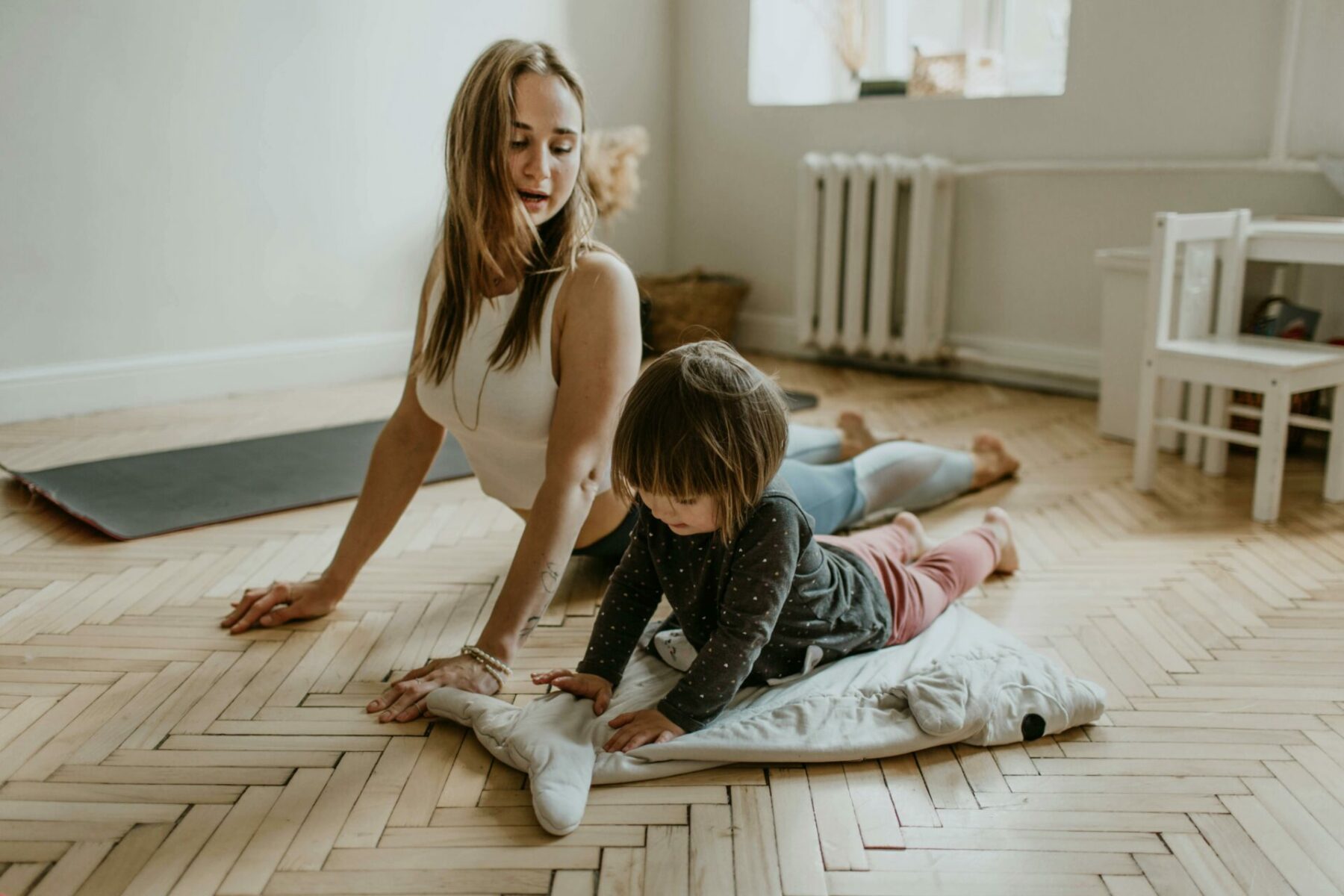
16. Feelings Check-in
As parents, it can be hard to recognize that when children are having emotional outbursts that they’re struggling to process their feelings. Having a feelings check-in when they’re suddenly upset, crying, or angry can help you recognize where the thought process is going astray in their heads.
As a parent, you’ll be able to help them look at problems in other ways to help them learn new alternative ways of thinking. But first, you need to understand where the frustration really stems from. You don’t want to assume what the problem is. For example, if you promised to buy ice cream later and then they get frustrated that you don’t. The outburst may be from a broken promise rather than the lack of ice cream. So, it’s about getting clarity about where frustration is coming from.
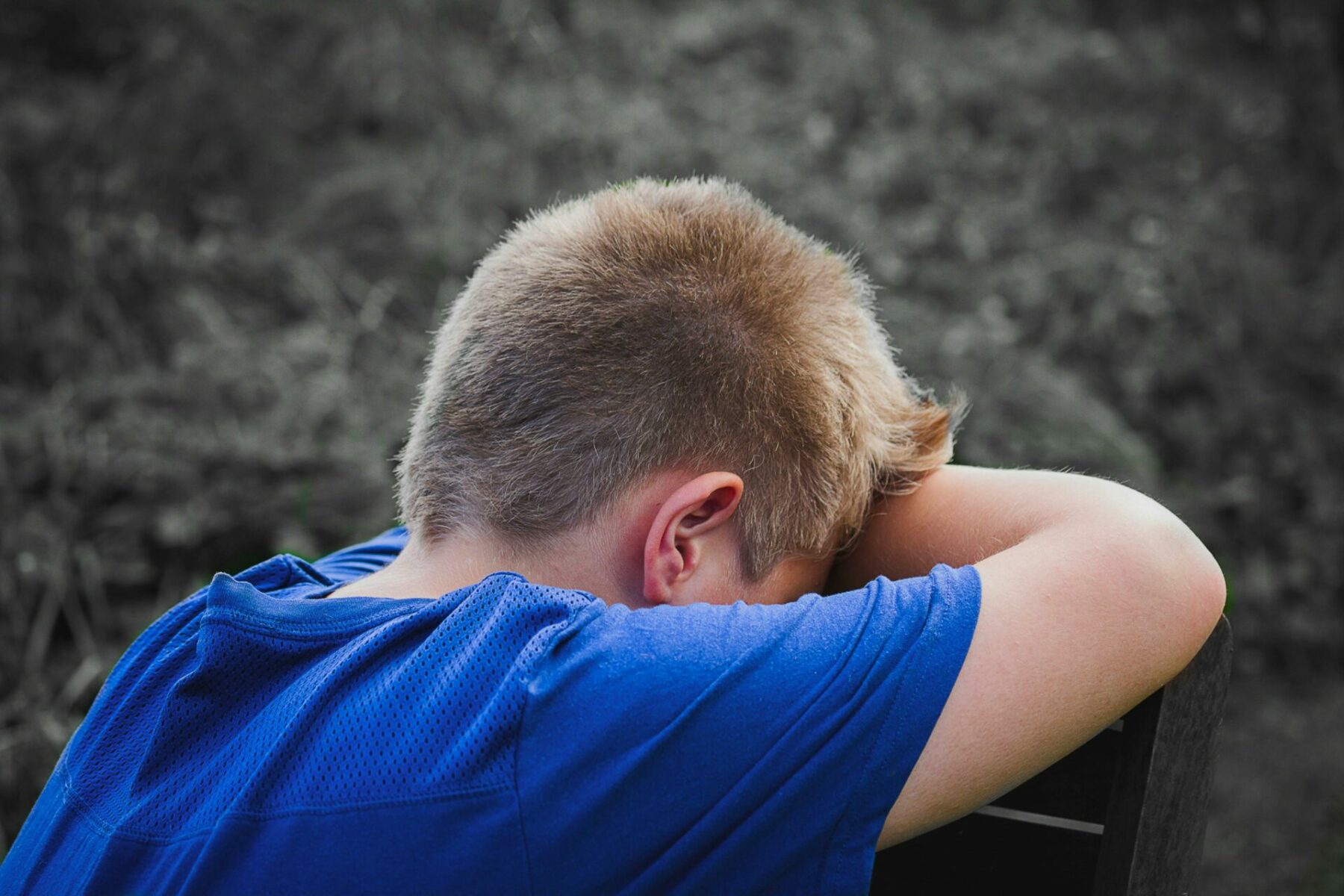
Your turn
Teaching your kids meditation is easiest when introducing them to fun mindfulness activities. It doesn’t need to be a chore or super high level for kids to start seeing the benefits and learning the usefulness of mindfulness early on.
It isn’t important that your kids understand the philosophy of mindfulness, how it works, or even why it’s important to learn. Instead, make it fun. Help them build the skill so that when they grow older, they will be better equipped to learn mindfulness meditation and manage their emotions and happiness better.
Have a recommended activity that teaches mindfulness to kids? Share it in the comments below.
[ad_2]
Source link

